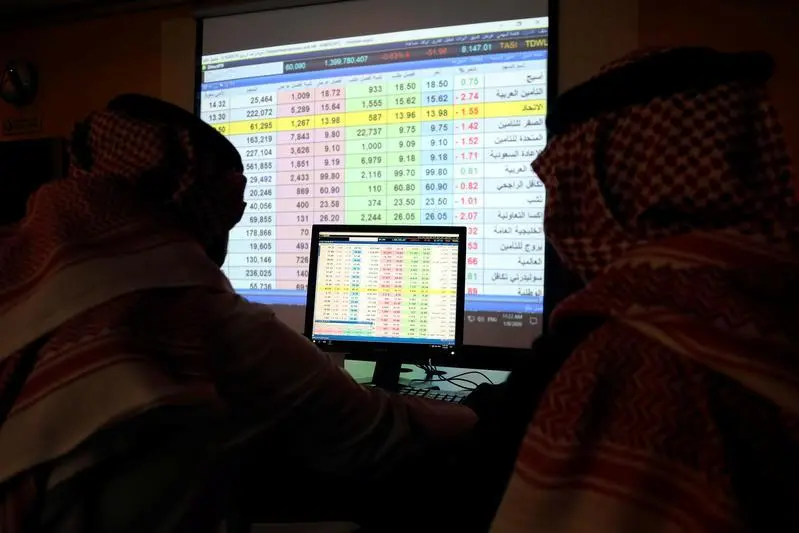PHOTO
The Riyadh-based financial services company, Al Rajhi Capital, has raised estimates for listed Saudi healthcare companies within its coverage as it expects the utilization of private healthcare companies to increase in the second half of 2020 due to the rise in COVID-19 patients as well as the return of patients seeking conventional treatments.
“The decline in the number of visits for conventional treatments may completely be nullified by the rise in COVID-19 patients, wherein the total cases reached approximately 229,000 with around 62,000 active cases in the Kingdom,” the brokerage said in a new report.
Due to this there is a rise in demand for intensive care unit (ICU) beds, which is now being taken care by private hospitals as ICU beds in public hospitals are expected to be mostly occupied, it said.
However, the profitability per bed from treatment of COVID-19 cases is not at similar levels for treatments such as heart surgeries, etc.
Meanwhile, tests for coronavirus are also directly contributing to the bottom-line for the healthcare companies as there is a 30 percent margin with the cost being paid cash by the patients.
Around 20 percent of revenue is contributed by coronavirus patients including inpatient, outpatient and related tests, the report estimates.
Most Saudi hospitals are expected to benefit in terms of increased revenue. “Based on our estimates, the uptrend is visible after Q2 and will get normalize in Q4,” the report said.
In addition, Saudis who used to go abroad for conventional treatment and surgeries are now expected to have them done locally as traveling is set to be limited in 2020. This could potentially increase the top-line, and thereby, earnings.
It is also expected that the Saudi Government would pay receivables related to COVID-19 in six months, easing the burden on healthcare operators. Further, the stimulus package announced by the government will also be beneficial for the healthcare sector, the report noted.
Target prices raised
The brokerage has raised the target prices on the four healthcare companies under its coverage.
“In our valuation, we have assumed that due to the expected rise in the number of patients on account of the pandemic, the utilization rate is expected to increase marginally mainly in H2 2020.”
Mouwasat Medical Services Co. has a revised target price of 109 riyals, with 8 percent upside. While the second quarter net income is expected to be 10 percent lower year-on-year (y-o-y) at 81.8 million riyals, third quarter earnings is estimated 18 percent higher y-o-y at 110 million riyals. Mouwasat’s receivables as a percentage of revenue in Q1 were 41 percent. The company expects to complete the expansion of Dammam and Madinah by the end of 2020, which will add value to its facilities.
Dallah Healthcare Co. is also expected to operate at better margins and profitability from COVID-19 treatments. Al Rajhi Capital has raised its target price 8 percent to 56 riyals. While second quarter net income is expected to be 10 percent lower year-on-year at 13.9 million riyals, third quarter earnings is estimated 11 percent higher y-o-y at 29.5 million riyals. Its receivables as a percentage of revenue in Q1 were 31 percent.
National Medical Care Co. has a revised target price of 49 riyals, with a 5 percent upside. Its Q2 net profit is expected at 12 million riyals, 14 percent lower y-o-y, while in the third quarter net profit is expected to be 15 percent higher y-o-y at over 19 million riyals. Care’s receivables as a percentage of revenue in Q1 were 41 percent.
Al Hammadi Co. for Development and Investment’s target price was revised 4 percent higher to 25 riyals. Its Q2 net profit is expected at to be 21 percent lower y-o-y at 15.9 million riyals, while net profit in Q3 jumps 7 percent y-o-y to 22.7 million riyals. Its receivables as a percentage of revenue in Q1 were 59 percent.
The report noted that risks to the estimates are lower than estimated utilization and pricing for the hospitals. The pandemic as well as the lower oil prices could increase unemployment or salary cuts, which may result in people not visiting private hospitals and getting free treatment in public hospitals. This could also affect the financials for private healthcare companies. Further, a rise in receivables may impact operating cash flows, it noted.
(Reporting by Brinda Darasha, editing by Seban Scaria)
#COVID19 #SAUDI #HEALTHCARE #EQUITIES
Disclaimer: This article is provided for informational purposes only. The content does not provide tax, legal or investment advice or opinion regarding the suitability, value or profitability of any particular security, portfolio or investment strategy. Read our full disclaimer policy here.
© ZAWYA 2020




















